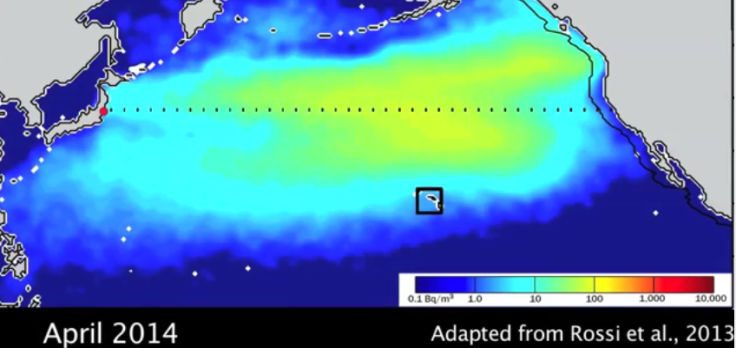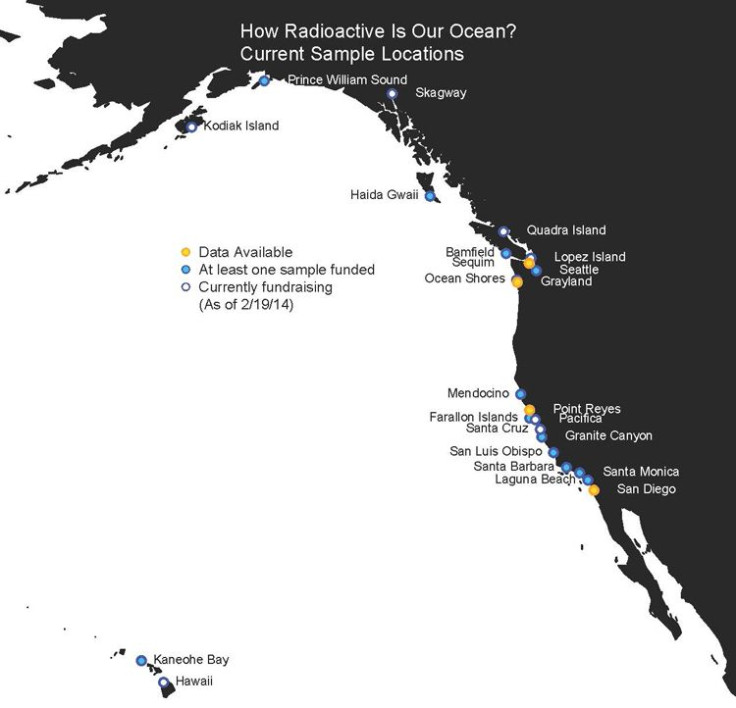Fukushima Radiation Reaches Waters Off the Coast Of Canada, Expected To Reach U.S. In April

Fukushima may have reached North American shores. Water samples collected off the coast of Vancouver, British Columbia, had trace amounts of radionuclides associated with the disastrous 2011 radiation leak at the Japanese nuclear plant, according to research presented at the Ocean Sciences Meeting on Feb. 24.
The levels of radioactive cesium isotopes are well below safe limits and researchers from the Woods Hole Oceanographic Institution will monitor the shores of Canada and the United States throughout 2014 as Fukushima fallout is expected to arrive in the coming months. Ken Buesseler, senior scientist at WHOI, has been performing tests and collecting samples from 24 different costal locations and presented the research at the Ocean Sciences Meeting Monday.
WHOI scientists detected cesium-134 and cesium-137, radioactive isotopes that have more neutrons, reports LiveScience, but the levels are below safe limits in drinking water. Radioactive isotopes leaked from Fukushima include cesium-134, cesium-137 and iodine-131. Cesium-137 has a longer half-life than cesium-134 and can be found in the ocean as the result of past nuclear tests.
The scientists are looking to find cesium-134 as it has a half-life of only two years and would be definitive proof of Fukushima radiation reaching North American shores. Cesium-137 has been found in eight testing locations but no evidence of cesium-134, reports LiveScience.

According to the WHOI plume prediction, Fukushima radionuclides will reach Alaska and British Columbia in early 2014, traveling south along the coast over the course of two years with trace amounts arriving in Hawaii. WHOI says the levels will be below the safety limit set by the U.S. Environmental Protection Agency. The EPA limit for cesium-137 in drinking water is 7,400 Becquerels, the radioactive decay per second, per cubic meter.
Buesseler said in a statement, "We expect over the rest of 2014, levels will become detectable starting first along the northern coastline. But the complex behavior of coastal currents will likely result in varying intensities and changes that cannot be predicted from models alone."
The radioactive plume has not reached the United States coast yet and experts believe the radiation levels will not pose a threat to humans or to marine life. The San Francisco Chronicle reports that, based on ocean circulation patterns, the first traces of the Fukushima radiation plume will be seen in April.
© Copyright IBTimes 2024. All rights reserved.












